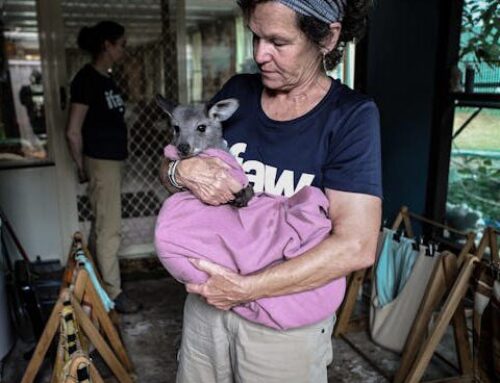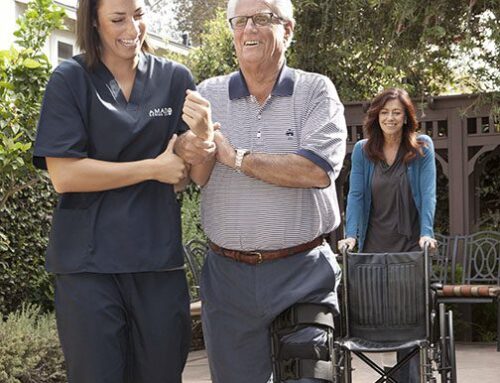According to the Centers for Disease Control and Prevention (CDC), 72 million Americans will be 65 years of age by 2030. That number is expected to reach 83.7 million by 2050. Within this group, the fastest growing demographic will be 85-year-olds, projected to reach 8.9 million by 2030 alone. While advances in medical science are clearly helping people live well into their 80s, 90s, and beyond, longevity brings its own set of challenges that may result in a loss of independence. Among them are chronic disease, cognitive impairment, falls leading to broken bones, poor nutrition, and more.
So in what ways do professional caregivers, home health aides and certified nursing assistants help ensure seniors maintain a lifestyle that allows them to stay independent, remaining in their own home for as long as possible? With June 16-22 designated as CNA Week for 2022, the following strategies can maintain and/or improve quality of life, keeping independence well within reach:
Focusing on Senior Nutrition
Like most things that “go,” the human body requires adequate, consistent, high-quality fuel. This takes the form of healthy food that must be shopped for, prepared, and of course consumed. As seniors continue to age, notably taste is one of the senses that may decline, making what used to be even a favorite food unpalatable. What’s more, appetite may also wane as a result of medication and/or a decrease in activity level, so the role of the caregiver in healthy aging cannot be underestimated.
“My client of three years became unable to drive to the grocery store,” says Sandy H., a Cleveland, Ohio caregiver. “I was able to shop for her and even bring her along when she wanted to go, as she was the best at picking out the freshest vegetables and fruit. We looked forward to it and made it into a fun activity.”
Today, and as a surprise beneficial byproduct of the pandemic quarantine mandate, there are usually in-store food shopper options and a variety of store-generated or outside delivery choices that will help seniors acquire the food items they need. There is usually an extra charge, but nothing beats the convenience of a service that helps provide for consistently good nutrition. And while diet can’t always stave off chronic disease, a healthy body has a better chance of presenting a strong immune defense when illness strikes, facilitating a faster recovery as well.
Exercise and Other Activities to Keep Up Senior Physical Health
For adults, the National Institute on Aging (NIA) recommends 150 minutes a week (2.5 hours) of moderate intensity aerobic exercise (brisk walking; jogging; cycling; fast dancing), with strength training at least two days a week. That said, the same guidelines state that any exercise is better than none, so if a senior doesn’t consistently hit the mark, some semblance of movement is still recommended. This is where, following a healthcare provider’s sanctioned plan, trained caregivers can make a difference in the quest for independence by encouraging a client to get up, out, and move—even participating for support in a fun physical activity.
“My 80-year-old client loves to garden,” reports Bourne, Mass.-based caregiver Amanda R. “He has nearly an acre of flower and vegetable beds. I discovered the exertion for over an hour or more can be challenging—for both of us! When we’re not out there gardening,” she continues, “we take daily brisk walks around the neighborhood, on the beach, or inside the mall in inclement weather—ending with a healthy smoothie at the food court.”
Medication Monitoring Key to Senior Independence
Prescription medication or vitamin supplements, staying current with meds can mean the difference between a healthy life and decline or hospitalization that results from neglectful medication management. Many people do not like the idea of depending on medication, especially when age-related conditions may require an increase in products A decline in mental acuity can sometimes cause forgetfulness as well. In this respect the caregiver’s role cannot be underestimated, providing constant monitoring and reminders so doses are not missed, noting and reporting when a prescription needs to be refilled, and reporting changes in the client’s mental and physical health, mobility, and other issues—some of which may be a reaction to medication.
As seniors age, helping them maintain a good quality of life requires support in many areas. The role that a family caregiver or a professional caregiver plays is invaluable and integral to a healthy, independent lifestyle.
Having a candid discussion about the challenges of aging is the first step to ensuring aging doesn’t equate to a loss of independence. If you think you or a loved one may benefit from an in-home caregiver, don’t hesitate to contact us at Amada Senior Care for a free care needs consultation. Click here to find an Amada Senior Care location near you.
“Three Significant Ways Caregivers Can Help Seniors Stay Independent,” written by Beth Herman, Amada Blog contributor.



